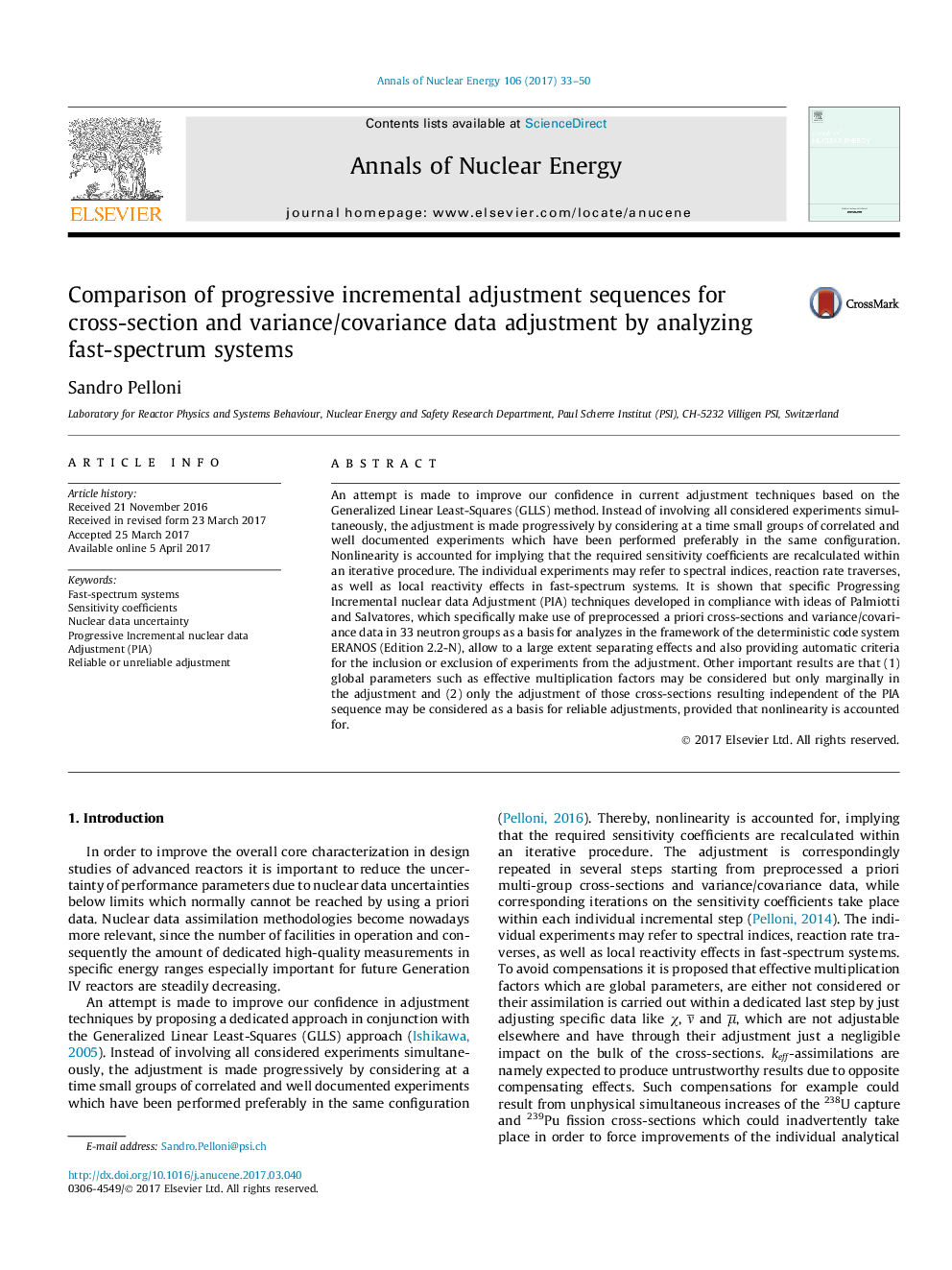| Article ID | Journal | Published Year | Pages | File Type |
|---|---|---|---|---|
| 5475173 | Annals of Nuclear Energy | 2017 | 18 Pages |
Abstract
An attempt is made to improve our confidence in current adjustment techniques based on the Generalized Linear Least-Squares (GLLS) method. Instead of involving all considered experiments simultaneously, the adjustment is made progressively by considering at a time small groups of correlated and well documented experiments which have been performed preferably in the same configuration. Nonlinearity is accounted for implying that the required sensitivity coefficients are recalculated within an iterative procedure. The individual experiments may refer to spectral indices, reaction rate traverses, as well as local reactivity effects in fast-spectrum systems. It is shown that specific Progressing Incremental nuclear data Adjustment (PIA) techniques developed in compliance with ideas of Palmiotti and Salvatores, which specifically make use of preprocessed a priori cross-sections and variance/covariance data in 33 neutron groups as a basis for analyzes in the framework of the deterministic code system ERANOS (Edition 2.2-N), allow to a large extent separating effects and also providing automatic criteria for the inclusion or exclusion of experiments from the adjustment. Other important results are that (1) global parameters such as effective multiplication factors may be considered but only marginally in the adjustment and (2) only the adjustment of those cross-sections resulting independent of the PIA sequence may be considered as a basis for reliable adjustments, provided that nonlinearity is accounted for.
Keywords
Related Topics
Physical Sciences and Engineering
Energy
Energy Engineering and Power Technology
Authors
Sandro Pelloni,
